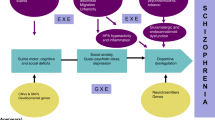Abstract
A Foucauldian assessment of the common presumption that genetic information is potent and thus oppressive demonstrates that the concern may be misplaced. Foucault's concept of “technologies of self” reveals that genetic power originates not only from the potency of genetic information but from the penchant of individuals to victimize themselves in the name of optimal health, enhanced intelligence, perfect babies, or would-be immortality. Rather than seeking liberation from the power of the new genetics, Foucault's reinterpretation of the ancient understanding of concern for the self offers the possibility to avoid control by the scientific discourse. His ethical response calls for resistance rather than opposition and places responsibility for resistance in the hands of the subject. Characteristically, he avoids a generalizable form of morality but clarifies that resistance includes acknowledging the human appetite for perfection and subordinating science to ethical and aesthetic matters.
Similar content being viewed by others
References
Anderson, F. (2000, January 1). A cure that may cost us ourselves. Newsweek, 75–76.
Bernauer, J. W. (1994). Michel Foucault's ecstatic thinking. In J. Bernauer & D. Rasmussen (Eds.), The final Foucault (pp. 45–82). Cambridge, MA: The MIT Press.
Foucault, M. (1975). The birth of the clinic: An archaeology of medical perception (M. S. Smith, Trans.). New York: Vintage Books.
Foucault, M. (1977). Powers and strategies. In C. Gordon (Ed.), Power/knowledge: Selected interviews and other writings (pp.134–145). New York: Pantheon Books.
Foucault, M. (1979). Discipline and punish: The birth of the prison (A. Sheidan, Trans.). New York: Vintage Books.
Foucault, M (1980). The history of sexuality: Volume1: An introduction. (R. Hurley, Trans.). New York: Vintage Books.
Foucault, M. (1986). The use of pleasure: Volume 2 of the history of sexuality (R. Hurley, Trans.). New York: Vintage Books.
Foucault, M. (1988). Technologies of the self. In L. H. Martin, H. Gutman, & P. H. Hutton (Eds.), Technologies of the self: A seminar with Michel Foucault (pp.16–49). Amherst, MA: University of Massachusetts Press.
Foucault, M. (1994). The ethic of care for the self as a practice of freedom, an interview with Michel Foucault on January 20, 1984. In J. Bernauer & D. Rasmussen (Eds.), The final Foucault (pp. 1–20). Cambridge, MA: MIT Press.
Foucault, M. (1994a). The ethics of the concern for self as a practice of freedom. In P. Rabinow (Ed.), Ethics: Subjectivity and truth (pp. 281–301). New York: The New Press.
Foucault, M. (1994b). On the genealogy of ethics: An overview of work in progress. In P. Rabinow (Ed.), Ethics, subjectivity and truth (pp. 253–280). New York: The New Press.
Foucault, M. (1994c). The order of things: An archeology of the human sciences. New York: Vintage Books.
Frank, A. W. (1998). Stories of illness as care of the self: A Foucauldian dialogue. Health: An Interdisciplinary Journal for the Social Study of Health, Illness and Medicine, 2(3, 329–348.
Martin, R. (1988). Truth, power, self: An interview with Michel Foucault. In L. H. Martin, H. Gutman, & P. H. Hutton (Eds.), Technologies of the self: A seminar with Michel Foucault (pp. 8–15). Amherst, MA: University of Massachusetts Press.
Mead, R. (1999, August 19). Eggs for sale. The New Yorker, 56–65.
Milk, L. (1999, May). Looking for Mr. Good genes. The Washingtonian, 65–66, 115–116.
Wilson, R. S., Mendes de Leon, C. F., Barnes, L. L., Schneider, J. A., Bienias, J. L., Evans, A., et al. (2002). Participation in cognitively stimulating activities and risk of incident Alzheimer disease. Journal of the American Medical Association, 287, 742–748.-
Author information
Authors and Affiliations
Corresponding author
Rights and permissions
About this article
Cite this article
Coors, M.E. A Foucauldian Foray into the New Genetics. Journal of Medical Humanities 24, 279–289 (2003). https://doi.org/10.1023/A:1026014605122
Issue Date:
DOI: https://doi.org/10.1023/A:1026014605122




